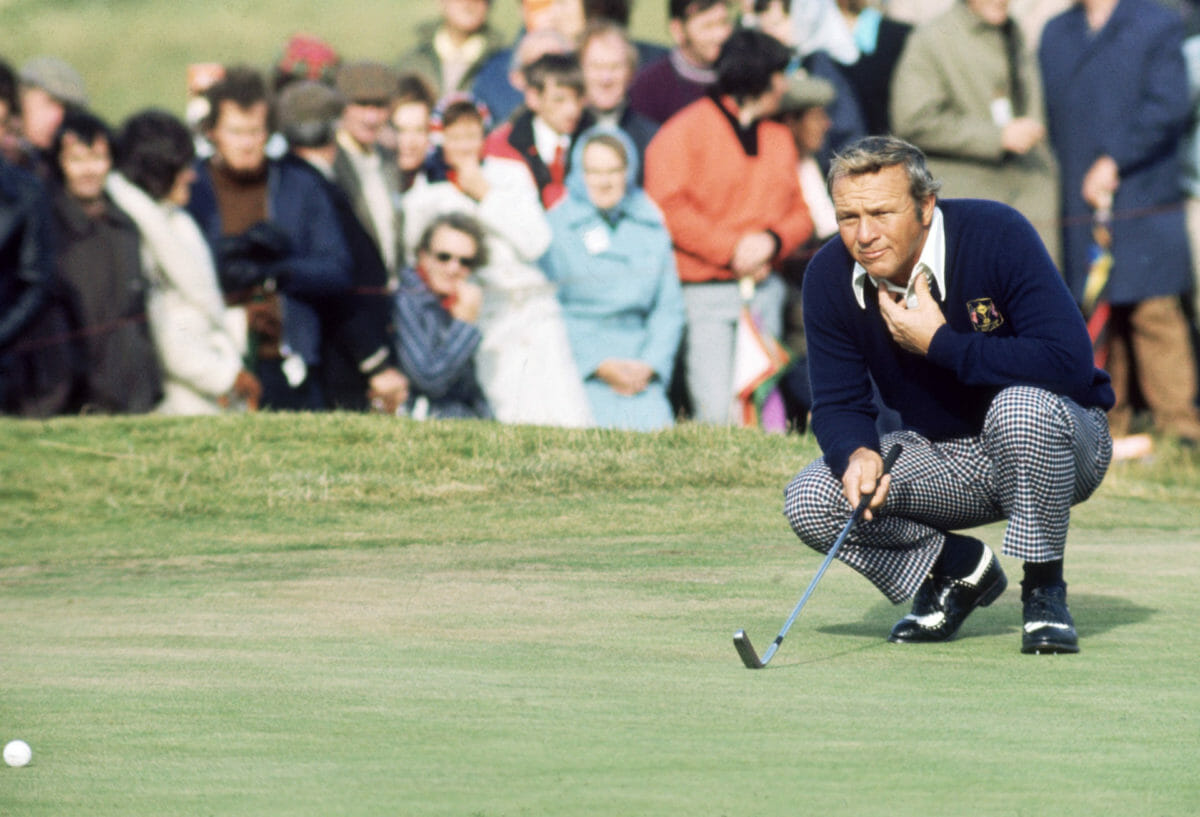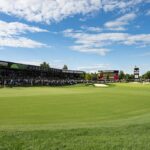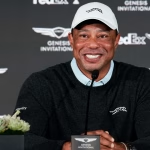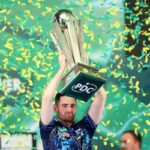Golf had many stars before the 1950s, but it wasn’t until Arnold Palmer burst on the scene in the latter part of the decade that its first superstar emerged. Sure, Harry Vardon, Bobby Jones, Walter Hagen, Gene Sarazen, Ben Hogan and Sam Snead had all won as many or more major championships that Palmer would, but it was his appeal to the wider public that would eventually earn him the moniker “The King” and a travelling legion known as Arnie’s Army.
At a time when Marlon Brando was the biggest star on the silver screen and inspired a generation that would give birth to rock-and-roll, Palmer had a look and swagger straight out of Hollywood. To gaze at the iconic image of Palmer, with cigarette in mouth, as he and Ben Hogan waited on the second tee box during the 1966 Masters, is to view the epitome of coolness. The crowds saw it, the crowds were drawn to it and the crowds embraced it.
Despite being The Masters champion and having 12 PGA Tour titles by the time the 1959 Ryder Cup came along, Palmer wasn’t considered eligible to compete in the event as he had only joined the Tour four years previous and hadn’t yet earned the privilege. But by the time the ’61 Ryder Cup rolled around, not only was Palmer eligible, but he was now a four-time major champion and the biggest draw on the American side.
On his Ryder Cup debut, Palmer would earn three-and-a-half of a possible four points (in those days the event was comprised of two foursomes sessions on Friday, followed by two singles sessions on Saturday) and was the top points scorer in a five point US victory.
Two years later, Arnie led the United States to a rout as playing captain at East Lake in Georgia, and was instrumental in the event being extended to three days with two fourball sessions added. It would also be the final time that a captain would also play in the event.
1969 apart, Palmer played in every Ryder Cup from ’61 to ’73, with the United States winning all six, and was instrumental in creating an era and culture of American dominance that laid the foundations for the reformation of the event and the inclusion of European players in the late 1970s.
By 1967, Palmer’s celebrity status had soared to the point that he had bought his own plane and used to pilot it himself, and he had brought it to Houston where the ’67 Ryder Cup was being held. Ever the man of the people, he brought the opposing team for what he called a “joyride” in his plane and drew the ire of the Federal Aviation Authority for failing to obtain permission for taking to the Houston skies. He would also finish with a perfect five-and-oh record in that event taking out Tony Jacklin in singles and Christy O’Connor and Peter Alliss among others in the pairs.
Arnie ended up with a record of 22 wins, eight losses, and two ties in his Ryder Cup career, for a total points haul of 23 and a winning percentage greater than 71 percent. That percentage is the highest of any American player to have played in 15 or more Ryder Cup matches. For a modern era comparison, Phil Mickelson has played in 12 Ryder Cups and has amassed 22 points in total. At the time of his final performance he held the record for most match wins, most points, highest winning percentage and shared several others.
Of course, Palmer’s dominance came against Great Britain and Ireland sides that didn’t have the benefit of European players to draw from, but it’s questionable whether any players from outside the British and Irish Isles would have qualified had they been eligible. And of course, from Palmer’s perspective, he can only beat the players in front of him.
For the man who had everything, the Ryder Cup was vitally important as money never came into it. In his own words, “it was about playing for something grander and more personal.” Like all records, they are made to be broken, and when Nick Faldo surpassed Palmer’s 22 victories in 1997, nobody was more pleased than Arnold himself because that was the measure of the competition.
And that in itself was a measure of the man.
Long live the King!























Leave a comment